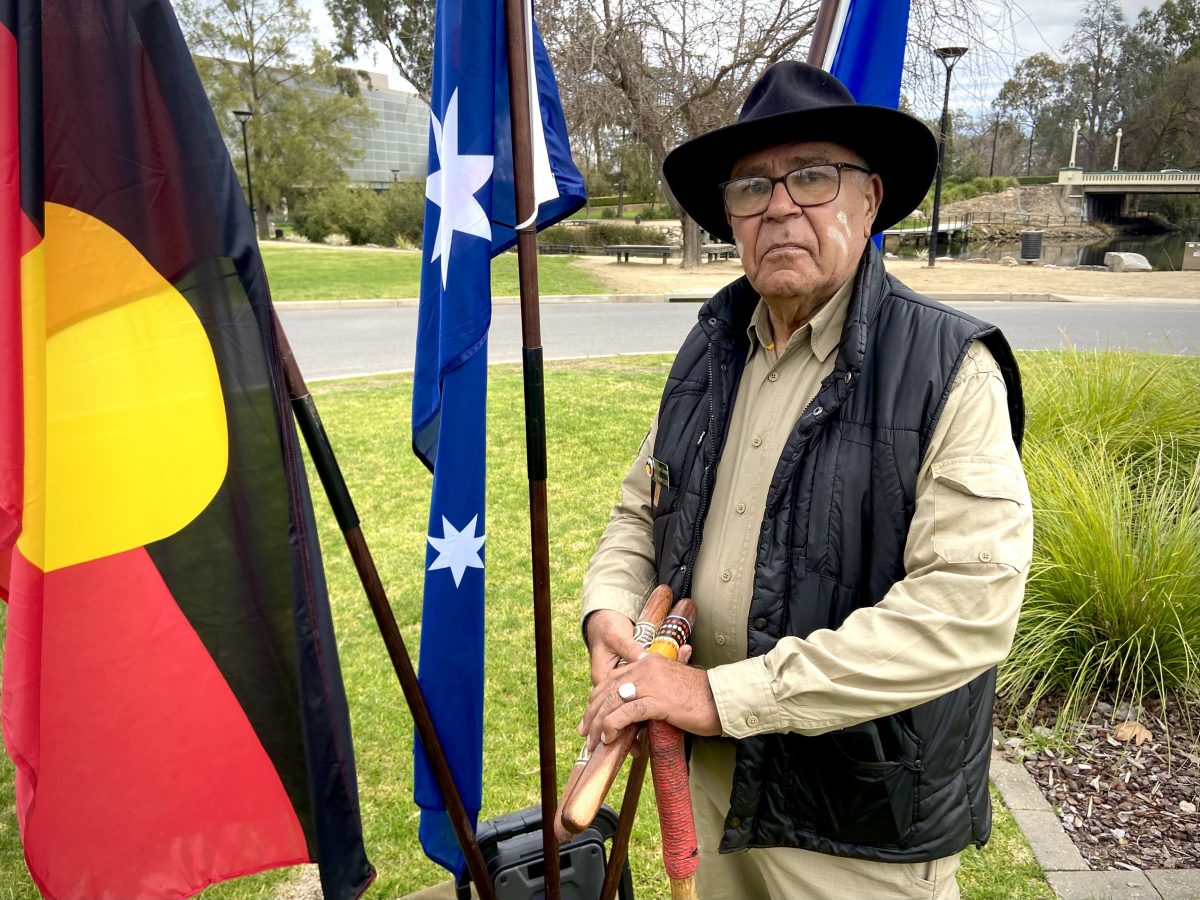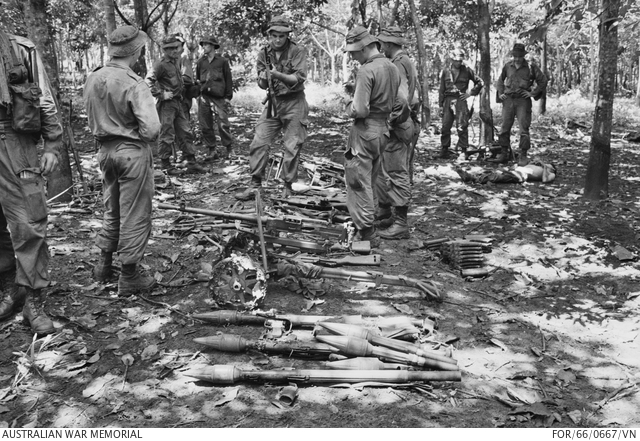
Hewitt Whyman served in Vietnam in 1969/70. Photo: Chris Roe.
Reflecting on Vietnam Veterans’ Day, Uncle Hewitt Whyman wants people to remember a couple of things.
One is the service and ultimate sacrifice paid by 200 of the more than 15,000 national servicemen, and the other is the reception they received after serving their country.
“We weren’t welcomed, we weren’t treated as we should have been treated,” he says.
“I think that this day is one to acknowledge the service of Vietnam veterans that served Country and the fellas that didn’t come back and those that did come back but were told to shut up and not to talk about their experiences.
“If you did, you’d be called a baby killer.”
Uncle Huey is a well-known Wagga identity and a respected First Nations Elder.
A member of the Stolen Generations, he was drafted into National Service in 1967 and remained in the army after his time in Vietnam.
Now in his 70s, Uncle Huey recently reenlisted with the rank of Warrant Officer Class Two to take on an official First Nations mentoring role with the 1st Recruit Training Battalion at Kapooka.
“I enlisted and swore allegiance to the flag again about 18 months ago,” he says with a chuckle.
“They’ve now got official army Aunties and Uncles, so I’m the official Kapooka Uncle.”

Hewitt Whyman and Joycelan Williams have been appointed official Uncle and Aunty of Kapooka. Photo: The Kapooka Chronicle.
Vietnam Veterans’ Day on 18 August commemorates the anniversary of the Battle of Long Tan in 1966 where units from the 1st Australian Task Force faced overwhelming odds in an encounter with Viet Cong soldiers.
Uncle Huey arrived in Vietnam a year after the famous battle and says the first thing that struck him when they landed was the smell.
“Getting off the plane you just got that waft of the air coming through and that smell of vegetation – humidity and vegetation,” he recalls.
As an artilleryman, he speaks with great respect for the New Zealand gunners who played a key role in the battle of Long Tan where the Australians famously called in fire just metres from their own positions.
“That was good shooting,” he says shaking his head.
“The guy at the sharp end said, ‘Danger Close – we want you to drop 50 metres’. And they said ‘You’re too close, that’s bringing it in almost on top of you’.
“He said – ‘Well if you don’t we’re gonna die either way.”
Eighteen Australians were killed and 24 wounded as they fought to the last bullet.
“I think it was about 14 out of the 18 deaths were national servicemen,” says Uncle Huey.
“They found them facing the enemy in fighting positions, the whole 14 of them, and I think that we should recognise the contribution of the National Service in that battle and in Vietnam.”

Soldiers gather captured weapons after the battle of Long Tan. Photo: Australian War Memorial.
He spent six months in country both on the guns and at the sharp end in the jungle and reflects that little was done to support them on their return.
“When we come back from Vietnam, there wasn’t a DVA (Department of Veterans Affairs) so if you’re trying to explain a headache or ask, ‘Why am I waking up in the middle of the night and crawling under the bed?’ and stuff like that, PTSD from shellfire, you just went to your doctor’s,” Uncle Huey says with a shrug.
“You went to your local sub-branch, but they didn’t want to know you because you were a Vietnam veteran.
“All the World War II soldiers, who were much younger then, were rejecting us, so we really had nowhere to go.”
He says Vietnam Veterans’ Day is a chance for those who still bear the scars of that conflict and its aftermath to come together to remember, but it is also a chance for Australians to show their gratitude.
“We served Country, but is the country grateful?” he asks.
“We didn’t get a welcome home parade when we came back. We didn’t march out and everybody cheered for us.
“It wasn’t until (1987) that we had a huge parade in Sydney and I remember as I marched down the street people were openly crying on the side and so were we.
“That was the first big joint parade for Vietnam veterans. We weren’t treated right and I think that must be remembered as well.”
Lest we forget.
Original Article published by Chris Roe on Region Riverina.







